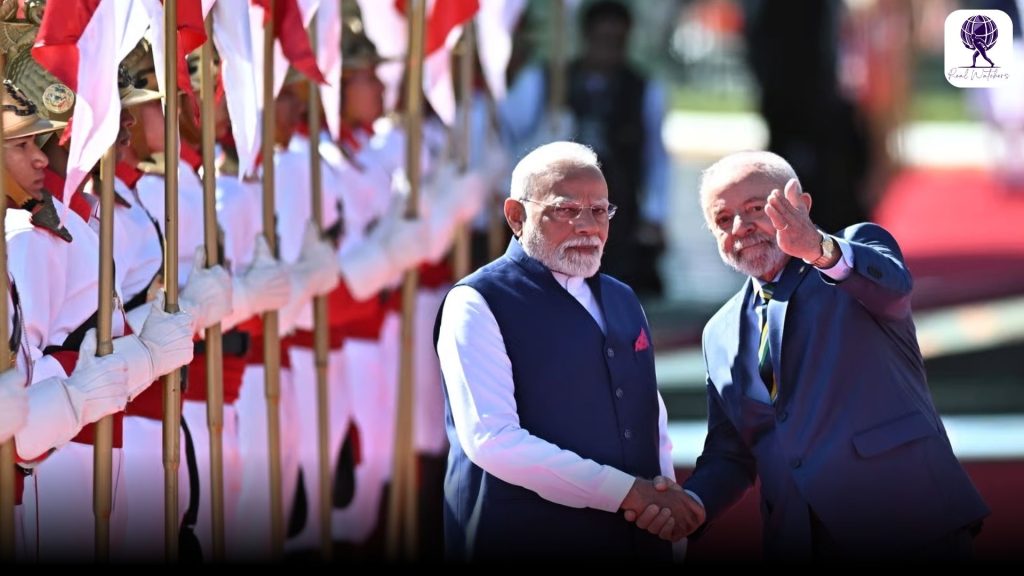Indian Prime Minister Narendra Modi is currently facing one of the most challenging periods of his 11-year tenure. A contentious ceasefire with Pakistan, renewed scrutiny regarding his age, and a diplomatic chill with the United States, despite a much-publicised rapport with President Donald Trump, have come together to challenge his leadership as never before.
As he navigates these challenges, Modi is also faced with opposition allegations regarding vote-rigging in the upcoming 2024 general election. As the electoral battle in Bihar approaches, the challenges are intensifying in one of India’s most politically significant states.
A loss in the state assembly vote would not undermine Modi’s standing in the national parliament; however, it would significantly tarnish the reputation of a leader who has held a firm grip on power since he was elected prime minister more than ten years ago.
This week, the Trump administration revealed a significant 50 per cent tariff on imports from India, marking one of the highest rates imposed on any nation globally, and plunging the bilateral relationship into turmoil. Until just six months ago, Trump and Modi were seen embracing warmly and referring to one another as close friends.
According to New Delhi-based political commentator Arati Jerath, the dynamics of the Indo-US relationship were significantly influenced by the individual characteristics of Donald Trump and Narendra Modi.
As the situation deteriorates, Modi finds himself without any buffer whatsoever. Many are expressing disappointment that this formidable leader has yet to demonstrate the strength and assertiveness he previously asserted he possessed.
Modi, however, has started to assert his position. On Thursday, he stated that the nation is prepared to support its farmers at all costs, omitting any mention of the ongoing conflict with the United States regarding the liberalisation of agricultural and dairy sectors to reduce Trump’s tariffs.
At a public event, he asserted, “India will never compromise on the interests of its farmers, livestock rearers, and fishermen.” “I understand that there could be significant personal consequences, but I am ready to face them.”
A social media graphic released by his party depicts Modi enduring blows from stones, bricks, and a dagger, symbolising tariffs. At the same time, he protects a farmer with a plough slung over his shoulder.
Experts suggest that Modi’s remarks signal the tariff conflict with the United States will take a prominent role in the upcoming campaign in Bihar, expected to commence next month. A recent survey conducted by the VoteVibe agency indicates that Modi’s National Democratic Alliance may face significant challenges in maintaining its hold on power in the state, primarily attributed to a shortage of job opportunities.
VoteVibe founder Amitabh Tiwari has stated that any potential nationalist backlash against Trump is unlikely to influence voters in what he describes as a “hyper-local election” within the economically disadvantaged state.
“According to Tiwari, the only prevailing theme is unemployment.”
The most widely recognized in the world
In a notable development amid growing resistance to Trump, Indian Prime Minister Modi is set to visit China in the upcoming weeks. This trip is expected to include a meeting with President Xi Jinping, alongside discussions with Russia’s Vladimir Putin, indicating a possible shift in geopolitical alliances.
On Thursday, Modi engaged in discussions with Brazil’s President Luiz Inacio Lula da Silva regarding the tariffs. The two nations, both founding members of the BRICS coalition that has faced criticism from Trump, are the most impacted by the tariffs imposed by the United States. Among the founding members are Russia, China, and South Africa.
According to data intelligence firm Morning Consult, Modi continues to hold the title of the world’s most popular head of government, boasting an impressive approval rating that surpasses 75 per cent. Even the core supporters of his Hindu nationalist agenda found themselves uneasy after a surprising ceasefire with predominantly Muslim Pakistan in May, which came on the heels of the most intense military confrontation between the two longstanding adversaries in decades.
The ceasefire has ignited a wave of controversy both domestically and internationally. The government led by Modi has consistently refuted Trump’s assertions that he utilised trade negotiations to facilitate the truce. Trump has significantly bolstered relations with Pakistan, which has publicly expressed gratitude for his involvement in resolving the conflict, thereby adding complexity to India’s diplomatic narrative.
The Congress party, the principal opposition in India, has put forth allegations against Prime Minister Modi’s Bharatiya Janata Party (BJP) and the Election Commission, claiming they have engaged in “rigging and stealing” the upcoming 2024 general election by incorporating fictitious individuals into voter lists.
During a press conference on Thursday, Congress leader Rahul Gandhi accused the Election Commission and the ruling party of orchestrating a significant criminal fraud against the nation.
The BJP has characterised the allegations as a manifestation of Congress’s frustration following a series of electoral defeats. “When Rahul Gandhi is unable to secure power through deceit, he labels it a conspiracy,” the post stated on X.
The Election Commission urged Gandhi to refrain from drawing “absurd conclusions and misleading the citizens of India.”
With Prime Minister Modi’s 75th birthday on the horizon next month, his age has sparked conversations, particularly as other leaders within the BJP have faced sidelining upon reaching this significant milestone. The BJP asserts that there is no established retirement age for its leaders.
In summary, experts have indicated that Modi is confronted with a challenging undertaking.
“Mr. Modi’s brand value is rapidly declining; he must find a way to reinvent himself,” stated Rasheed Kidwai, a visiting fellow at the Observer Research Foundation think tank in New Delhi.
“The lustre will diminish, especially if he faces defeat in the Bihar election.” In India, elections play a pivotal role in shaping the nation’s future.








